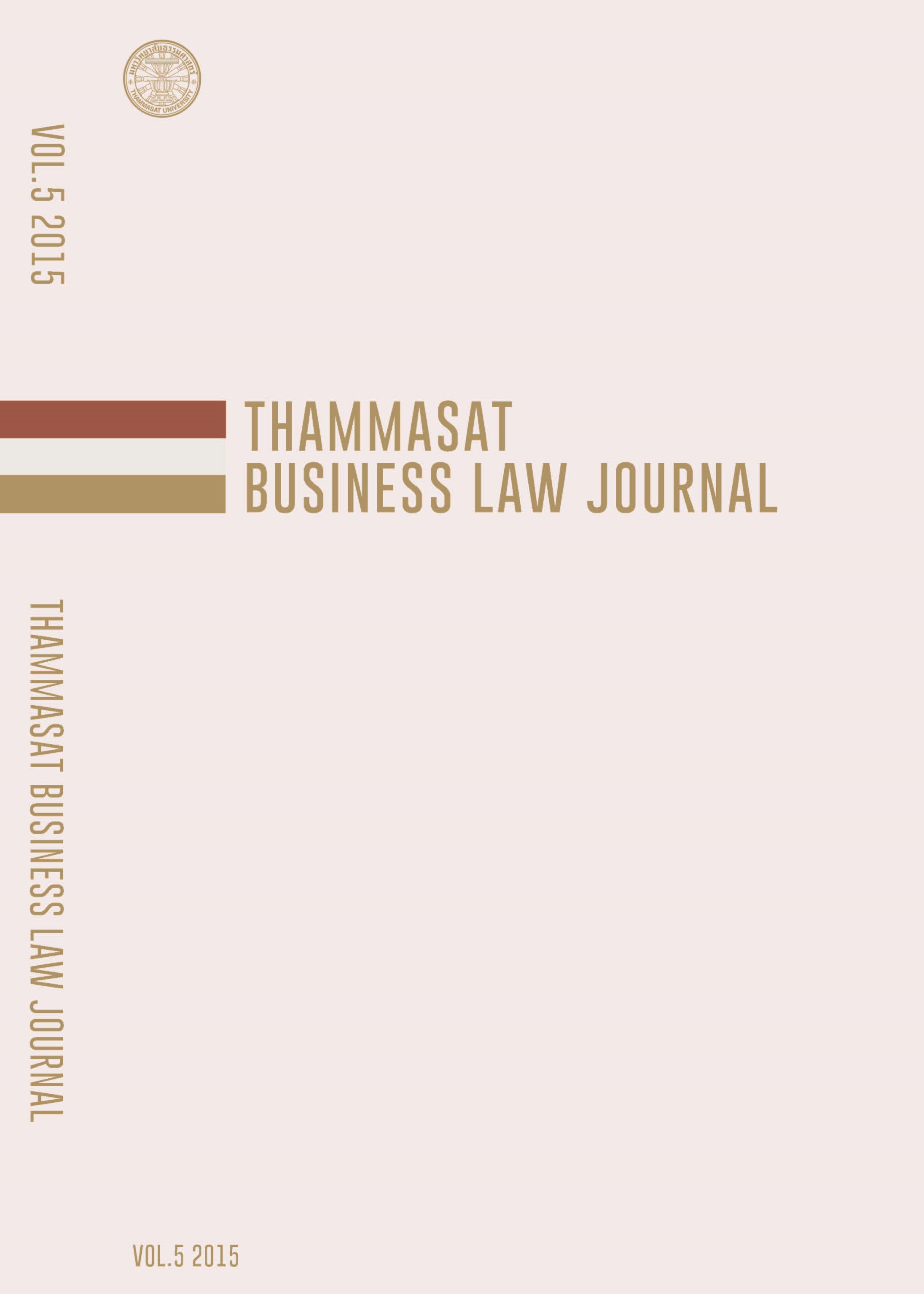MEASURES AGAINST PROFIT DEFERRAL THOUGHT OFFSHORE COMPANY
Main Article Content
Abstract
In the globalization, international business transactions have been increasing rapidly over the years. This is the reason why the world economy has become increasingly integrated Trade flows have grown as a proportion of national income, global capital market and investments have expanded in many states. These international business activities have led to the formation of groups of companies with mutual interests.
Generally, the goal of business enterprise is to create profit. In practice, most companies make profit by business expansion as well as in many other ways, such as it can be enhanced through transfer pricing using a foreign company. Profits that arise in the company are generally not taxed in the shareholder’s country until the shareholder receives dividends or disposes of the shares in the foreign company, implying that taxation in the shareholder’s residence state is deferred. This is beneficial to the extent that the foreign tax payable is lower than the residence state’s tax. Thus, the tax deferral encourages residents to remove income to low tax jurisdictions and to accumulate such income there instead of repatriating the dividends to the residence state.
Currently, since Thailand is a source income country and needs capital inflow and high technologies, MNEs have influenced the development of Thailand through their investments. The problems of tax deferral and tax base erosion have existed because it is difficult to transparently identify the matter due to a lack of information and the nature of trans-border business transactions of MNEs. All the information and documentation are also often kept in the parent company established in other countries.
Thailand is also facing the problem of international tax planning or tax avoidance by MNEs based in Thailand and abroad. Moreover, Thailand has not had any protection measures in Thai Revenue Code that would enable the authorities to prevent or respond effectively to such international tax planning. Therefore, the “Controlled Foreign Company” measures should be used for preventing international tax avoidance in Thailand.
Article Details
References
Crawford Shaw., Legal Problems in International Trade and Investment,First Edition, The World Community Association by Oceana Publications, 2011
Dennis Campbell, International Taxation of Low-Tax Transactions : High Tax Jurisdictions, First Edition, Yorkhill Law Publishing, 2008
KPMG Tax Corporation, Japanese Tax Haven (CFC) Rules for 2010, First Edition, KPMG, August 2010
Price Waterhouse Cooper Ltd., Base Erosion and Profit Shifting, Impact on jersey, (2nd ed. 2013)
OECD, Action Plan on Base Erosion and Profit Shifting, OECD Publishing 8 (1st ed. 2013).
OECD, Controlled Foreign Company Legislation, Paris: Head of Publications Service, OECD, First Edition, 1996
OECD, Harmful Tax Competition an Emerging Global Issue, France: OECD Publications, First Edition, 1998
OECD, Tax Policy Studies Corporate Tax Incentives for Foreign Direct Investment, OECD Committee on Fiscal Affairs, 2001
Robert E. Meldman, Micheal S. Schadewald and Robert J. Misey JR., A Practical Guide to U.S. Taxation of International Transactions, Sixth Edition, CCH, 2003
Yasutaka Nishikori, Tsuyoshi Ito, James Emerson and Atsushi Mizushima, New Developments in Japan’s CFC rules: Liberalisation, Expansion and Clarification, Euromoney Handbooks, First Edition, 2010
สุเมธ ศิริคุณโชติ, กฎหมายภาษีอากรระหว่างประเทศ, พิมพ์ครั้งที่ 2 แก้ไขเพิ่มเติม กรุงเทพมหานคร, สำนักพิมพ์มหาวิทยาลัยธรรมศาสตร์ 2550, (Sumat Sirikhunnachote, International Tax Law, Second Edition Revise, Bangkok: Thammasat University Press, 2007)
International Economic Industry Organization, “ASEAN Economic Communit: Opportunity and Impact on Thai Industrial”, International Economic Industry Organization, (2011).
Sara Anderson, “CFC Rules and Double Tax Treaties Article”, The OECD and UN Model Tax Conventions, (2006).
ปฐมาภรณ์ นิธิชัย, การลงทุนทางตรงในต่างประเทศของบริษัทจดทะเบียนไทย : สถานะปัจจุบันและข้อเสนอแนะเชิงนโยบาย, เอกสารงานวิจัย ฉบับที่ 2/2554 (Patamaporn Nitichai, Foreign Direct Investment of Thai Enterprises: Current status and Policy Suggestion, Documentary Research Issue 2/2011).
European Central Bank Working Paper Series No. 31, The Disappearing Tax Base: Is Foreign Direct Investment Eroding Corporate Income Taxes, 7 October 2000, http://www.Imf.org/external/pubs/ ft/wp/2000/wp00173.pdf


